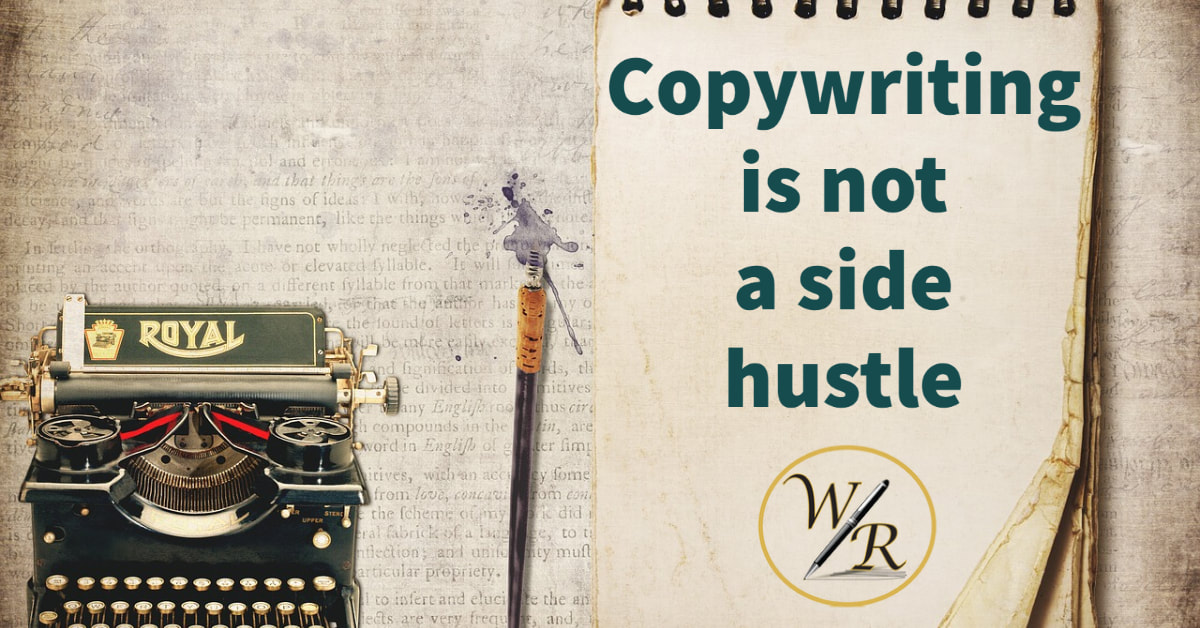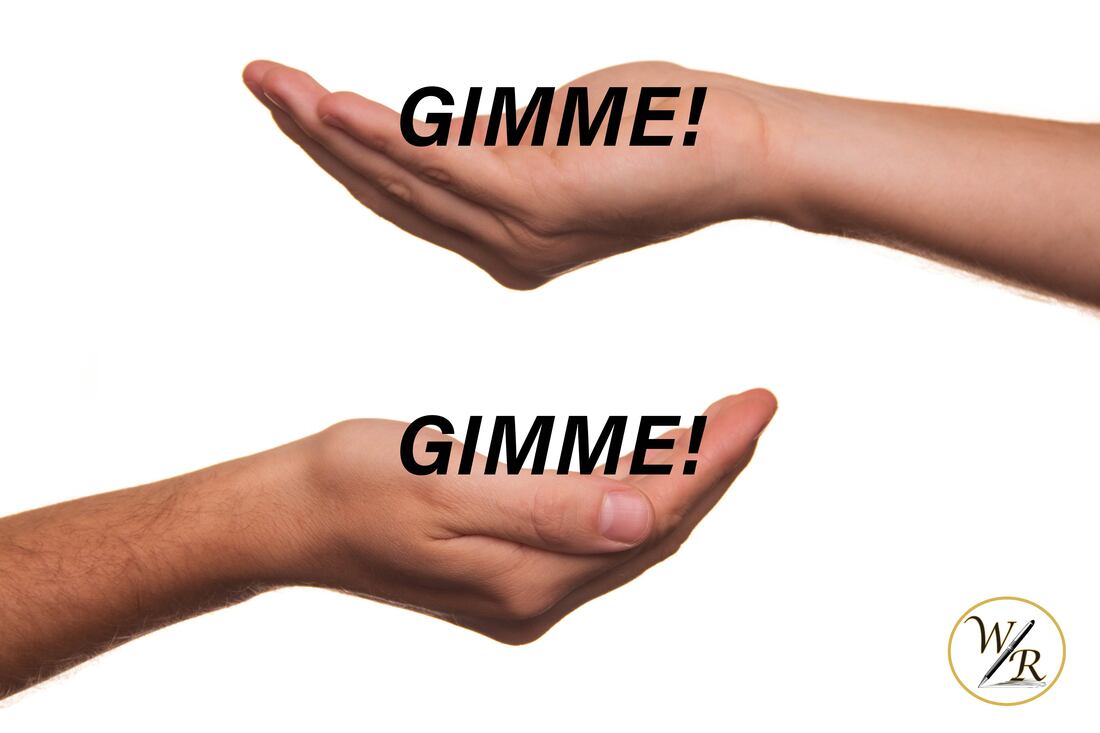|
Graphic courtesy of Gerd Altmann Picture it. Sicily, 2021. Nah, just kidding. I only wish I was somewhere that exciting (or in an episode of Golden Girls, either would be awesome). Where I really am is perched in my favorite office chair, slurping my morning tea as I start my workday. I’m clicky-clacking away on my keyboard as I pour out my soul in my latest quest to produce quality content for a client. I’m on a roll. I’ve hit my stride, and nothing can stop me now. Well, almost nothing. Ring, ring. It’s my cell phone. I quickly glance at the screen, see who is calling, and make the judgment that I can call them back later. They don’t leave a message, so I continue in my assumption that it’s not a priority. Right now, I must focus on my work. Ding-dong! It’s my cell phone again. This time, I have a text message. I glance at it quickly, seeing that it is from the same person who just called me. I read it quickly and again decide it can wait and go back to writing. Beep boop! You guessed it. It’s my cell phone again. This time, it’s an email. If you guessed that it’s from the same person who just called and texted me, you would be correct. For the third and final time, I decide the person can wait. I know who it is. I am certain it is not an emergency after seeing their text. I need to focus on my work. I go back to writing. Ring, ring! Ding, dong! Beep, boop! Call, text, email. Call, text, email. The cycle repeats ad nauseam. Bleepity, bleep, bloop, blip! No, that’s not the sound of my phone. That’s me, censoring out my not-E-for-everyone response to the same person repeatedly interrupting my workday. By now, I’ve lost my writing groove and am struggling to recall what point I wanted to make in my copy. I know what some of you are thinking. Why didn’t I just answer the phone? Well, if I did that every time my phone notified me of a call, text, or email, I’d get nothing else done all day long except answering it. And 99.99 percent of the time, it’s not urgent. I know what some others of you also are thinking. Why don’t I just turn my phone off during the workday? That is never a good idea. The last time I completely silenced my phone, I missed an emergency phone call about a family member having a medical emergency. So yeah, I don’t do that anymore. I spend the day quickly glancing at messages during scheduled times and reply as needed. That works for most people who find it necessary to contact me during the workday who do not already have a scheduled appointment. For the repeat offenders who make me want to toss my phone out into the yard, it requires a little more grace. The instant gratification nationIf you’re honest about it, you probably have experienced something similar. People are too impatient to wait for you to respond. They call. You don’t answer. So, they text. You don’t answer. So, they email. You still don’t answer. Instead of them taking the hint, they repeat the process until they get the result they desire. They get rewarded for their irritating behavior and you end up frustrated. You may even risk missing a crucial deadline because you couldn’t concentrate on your work. I don’t blame the person. I blame technology. Apparently, I’m not alone in my finger-pointing. Numerous studies in recent years have concluded the same thing: technology makes us impatient. One such report suggests people grow frustrated after waiting 16 seconds for a website to load. In the grand scheme of things, 16 seconds is not a long time. Reading these studies gave me greater insight into why most businesses suffer from high bounce rates on their websites. People simply lose patience. I get why technology makes people forget that patience is a virtue. That doesn’t mean I accept it. I’m a Gen-Xer. When I was a kid, we still had rotary dial phones with cords. Heck, it took more than a few seconds just to dial a number. You’d select the first digit, wind it around, then wait for the dial pad to come back. You’d repeat that again until you dialed all the digits to complete your call. (If you weren’t a patient person, dialing a rotary phone would certainly cure you of that). If a person you were calling didn’t answer that was the end of it. Back then, most families still didn’t have answering machines, so you couldn’t even leave a message. You assumed they weren’t home and tried again later. What you didn’t do was continue to call them, over and over, until someone answered. You found something better to do with your time. Now, we have these handy little digital devices we shove in our back pockets that make it easy for people to literally stalk us. No matter where you are or what you are doing, they can reach you. Heck, it’s not even safe to take a bathroom break without the expectation that you’ll still answer calls and texts. Call me crazy, but there are just some experiences I don’t care to share with other people. Technology has ruined our patience, and that is not a good thing, my friends. Not a good thing at all. Reversing the instant gratification urgeHurry up and wait. No, really. Forcing yourself to resist the urge for immediate satisfaction is the number one way to become more patient. I didn’t just make this up. Science says so. Practicing our patients makes us happier. No, really. The more we practice waiting, the better we’ll get at it, and the more enjoyment we’ll get out of life. Who knew? Here are some other effective strategies for tolerating delay without freaking out and losing your mind:
Patience is a virtueIf you’ve read this far, CONGRATULATIONS! Take a moment to give yourself a well-deserved pat on the back. You have more patience than the average person (since this was more than a 16-second read). Thomas the Tank Engine was right, my friends. Patience is a virtue. Practice it, and it will serve you well in life.
0 Comments
 Check out the (insert name of copywriting course here)! It is on sale for today only! For just $29.99, you, too, can learn how to turn copywriting into a lucrative side hustle! Sound too good to be true? It is. If I had a dollar for every advertisement that I saw online promising to turn copywriting into a lucrative side hustle, I would not need to work. Ever. Again. If you get the feeling that these kinds of ads irk the living snot out of me, you are not wrong. For starters, I guarantee you that there is not a course out there that can teach you how to "side hustle" your way to building a copywriting empire. Sorry, but no. That is a secret you keep all to yourself as not to spur a bunch of competition. Also, any writing program that claims you can work from the beach should immediately be tossed in the trash. Reputable copywriters will tell you they do not set up shop at the beach. For starters, all that sand and saltwater is not great for electronic devices. Second, becoming a top-rated copywriter is not a day at the beach. Copywriters who make the coveted six figures these programs promise work long hours and dedicate ample time to every customer they serve to ensure their satisfaction. Copywriting is not a side hustle, my friends, and I am going to tell you why. What the heck is a “side hustle” anyway?If you have been paying attention to economic news lately, you have likely heard terms like gig economy and side hustle tossed about. Confused? Let me break it down for you. Gig economy refers to a labor market consisting of short-term contracts and freelance work. Think Uber, GrubHub, and Instacart to help visualize the concept. Those are not the only kind of workers in the gig economy. There are other contractors (I hate the word freelancers, so not going to use it) who provide a variety of professional services. These folks all fit the definition of a gig worker since they have shunned the traditional 9-to-5 for something that suits their lifestyle and their skills. Gig work is not the same thing as a side hustle. Gig workers usually forgo any kind of traditional employment. Side hustles are any type of job a person takes outside their regular full-time employment. Side hustlers are people who have jobs with benefits but choose to pursue their passion “on the side.” Keep in mind that some employers restrict their employees’ ability to work a second job. Their reach extends to side hustles. Make sure yours is not one of them before you spend your time and money launching a side gig that lands you in hot water with your employer.  Why copywriting is not a side hustleNow that you understand what a side hustle is, let me explain why I get so riled up when people suggest copywriting is a great side hustle. If anyone could write high-quality copy, there would not be so many businesses and other organizations out there hiring copywriters to help them. Writing is hard. No matter how many $400 courses you buy trying to side hustle your way to six figures as a writer, you still may fail miserably. That is what none of those courses tell you. They just want your money, so they sell you on a dream that simply is not the reality for most people. There is another reason copywriting is not a great choice for a side hustle. Most people who engage in side-hustling do so to start their own businesses and eventually leave their full-time jobs. If this is your goal, it can be difficult to reach it in the copywriting profession. Why? Well, to put it bluntly, to truly make it as a copywriter, you must devote all your time to it. You cannot do that if you are working a full-time job. That is the quickest way to Burnoutville, my friends. It takes time to build relationships and network with prospective clients. You are fooling yourself if you think you can do that well and still put in 40-plus hours a week somewhere else. Before you know it, you will begin to feel like a hamster running on a wheel as fast as you can but never getting anywhere. Clients deserve betterThink about it. What if during your next visit to your hairstylist, she kept pausing in the middle of your cut-and-style to answer emails or calls that had absolutely nothing to do with the job at hand? Or you hired a contractor to fix your leaky roof, but it took him more than a week to patch a small hole because he kept stopping so he could handle calls for his side gig. It would probably make you feel unvalued, amiright? No matter how well-intentioned you may be, your side hustle eventually will creep into your primary job. What ends up happening is neither your employer nor your side-hustle clients are getting your full attention. Your clients deserve better. The side-hustle solutionSolving the side-hustle problem is easy. If copywriting is truly your passion, and you have the skills to be successful at it, then give it your full-time attention. Build up enough of a cushion in savings at your current full-time job to leave it entirely within one to two years to pursue copywriting. You must be disciplined and work hard at building your brand. Will it be scary? Hell yes. Will you work your backside off until you feel utterly exhausted at the end of each day? Absolutely. Trust me when I say it will be worth it.
Need more tips on how to pursue your copywriting passion? Reach out to The Write Reflection™ to discuss the best strategy. |
Categories
All
Archives
April 2024
|


